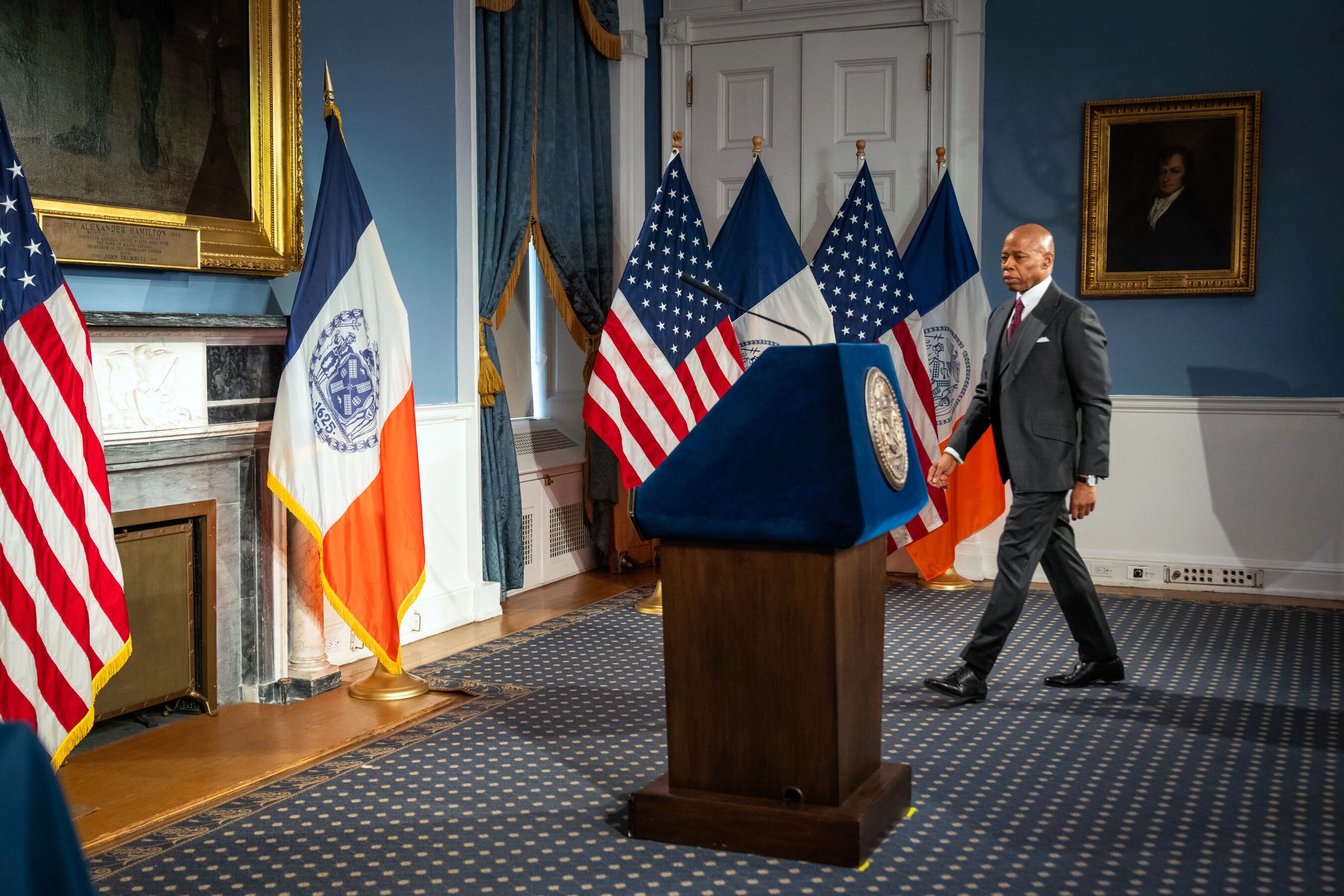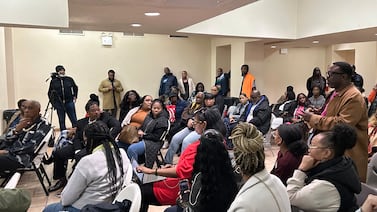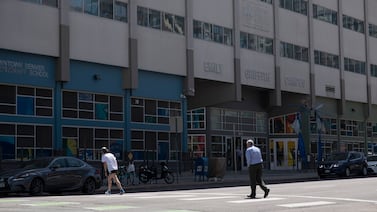Sign up for Chalkbeat New York’s free daily newsletter to get essential news about NYC’s public schools delivered to your inbox.
After the U.S. Department of Justice ordered prosecutors in Manhattan to drop corruption charges against Mayor Eric Adams on Monday, education observers raised fresh concerns about the influence of the Trump administration on city schools.
Under mayoral control the city’s chief executive is responsible for overseeing its 1,600 schools, along with appointing the schools chancellor.
With federal officials dangling the possibility of revisiting the prosecution after the mayoral election, Adams could face pressure to bend to the Trump administration’s will. That dynamic may affect the city’s willingness to aid federal immigration officials, observers said, reverberating among schools and families.
On Tuesday, Adams insisted that he had not broken any laws and vowed to “put this cruel episode behind us and focus entirely on the future of our city.”
He added: “I would never put any personal benefit above my solemn responsibility as your mayor.”
The Department of Justice indicated officials want to drop the charges because they were issued too close to this year’s mayoral election and interfered with the mayor’s ability to support Trump’s immigration crackdown. It is up to acting U.S. Attorney Danielle Sassoon to file a motion to dismiss the case, though her office had not said as of Tuesday afternoon whether she will follow through on the order.
The corruption charges against Adams, which included wire fraud, bribery, and receiving contributions from foreign nationals that he knew to be illegal, were brought at the end of September — nine months before the mayoral primary. Adams has fiercely maintained his innocence.
In recent weeks, Adams appeared to be angling for leniency from President Donald Trump, meeting with him near his Mar-a-Lago estate, and driving through the night to accept a last-minute invitation to his inauguration.
To Jonathan Collins, a professor of politics and education at Columbia University’s Teachers College, Trump’s intervention in Adams’ case may signal that the mayor is willing to “open the curtain for immigration enforcement” in the nation’s largest school system.
“President Trump has displayed a clear pattern of expecting very clear loyalty from people who receive any sort of political favor from him,” he said. “There is absolutely no reason to expect for that to not occur with Eric Adams.”
After Trump rescinded a longstanding federal policy that limited immigration enforcement at “sensitive” locations, including schools, Adams refrained from taking a clear stance. On Monday, just hours before news broke of the Justice Department’s order to drop the prosecution, Adams ordered senior officials — including the schools chancellor — to avoid criticizing Trump, THE CITY reported.
With the spectre of a criminal trial gone for now, some observers expect the mayor will be even more willing to cooperate.
“We might have the mayor now in a position of permanent blackmail,” said Naveed Hasan, an elected parent representative on the Panel for Educational Policy, which signs off on Education Department contracts and other policy decisions. (Of the panel’s 24 members, 13 are appointed by the mayor.)
“How does that give confidence to parents that the school system is able to operate in a way that benefits the kids’ education, their welfare, their safety?” he asked.
Hasan is particularly concerned that Adams’ cooperation with the Trump administration could amplify fear in immigrant communities at a time when some families are already worried about sending their children to school.
“This is a direct impact on our school attendance, school enrollment — all of the things that we’ve been working so hard to stabilize,” Hasan said. Over the past two years, the city’s public schools have welcomed more than 48,0000 migrant children, helping stop some of the deep declines in student enrollment.
Mixed messages on immigration enforcement sow confusion
Some observers noted that the city still has strong policies in place that limit local officials from cooperating with federal immigration enforcement. Schools have been forbidden to cooperate with non-local law enforcement without a valid judicial warrant that has been reviewed by city lawyers.
But confusion has mounted in recent days about a city directive that appeared to weaken that guidance, allowing city employees to step aside if they feel threatened by federal agents.
The city’s teachers union indicated on Friday the directive was not sent to the Education Department. On Sunday, schools Chancellor Melissa Aviles-Ramos posted a statement on social media reiterating that “non-local law enforcement is NOT permitted in any of our school buildings without a judicial warrant or unless there are exigent circumstances.”
The next day, Adams issued a directive to senior officials to refrain from antagonizing Trump, an order that will likely continue to put Aviles-Ramos in a difficult position. Adams tapped her to take over from David Banks, who resigned after he was swept up in a broader federal investigation of Adams’ inner circle, and Aviles-Ramos has hewed closely to the mayor’s education priorities. (Banks has admitted no wrongdoing.)
Johanna Miller, director of the education policy center at the New York Civil Liberties Union, said she appreciated the chancellor’s message but worries about mixed signals from the mayor.
“We’re in a really confusing situation because New York City’s written policy is quite good, but the mayor’s actions are speaking louder than his policies right now,” she said.
Some families have been frustrated that Aviles-Ramos has not more forcefully denounced Trump administration orders that seek to limit how schools support transgender and nonbinary children. But some advocates saw her statement over the weekend supporting immigrant students as a positive sign.
“I think it was incredibly brave of her,” said Murad Awawdeh, president and CEO of the New York Immigration Coalition. “We wish that other commissioners and other folks within government do the same to reassure our communities that the city of New York is not going to turn its back on our residents.”
Amy Zimmer is the bureau chief for Chalkbeat New York. Contact Amy at azimmer@chalkbeat.org.
Alex Zimmerman is a reporter for Chalkbeat New York, covering NYC public schools. Contact Alex at azimmerman@chalkbeat.org.
Julian Shen-Berro is a reporter covering New York City. Contact him at jshen-berro@chalkbeat.org






